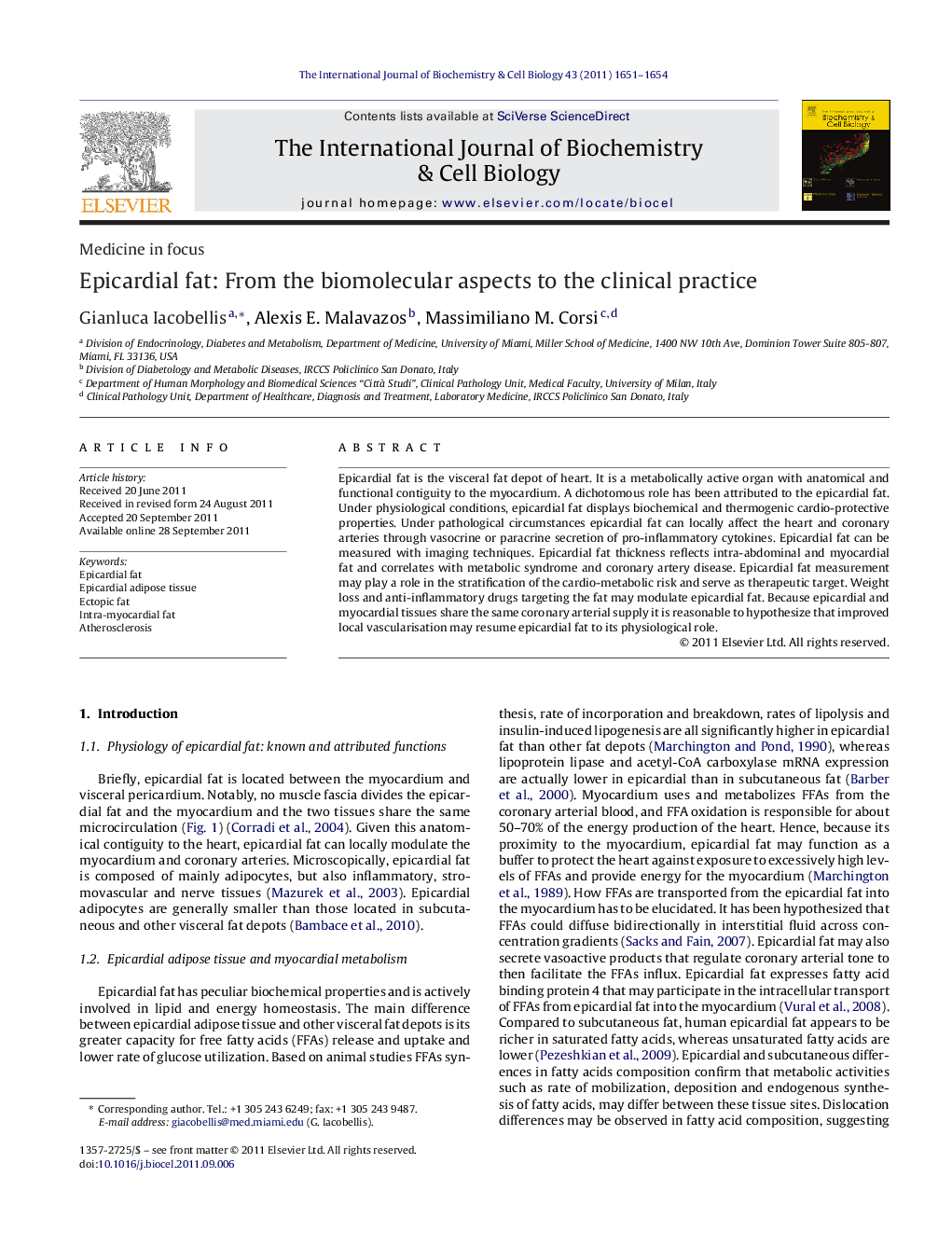| Article ID | Journal | Published Year | Pages | File Type |
|---|---|---|---|---|
| 1984147 | The International Journal of Biochemistry & Cell Biology | 2011 | 4 Pages |
Epicardial fat is the visceral fat depot of heart. It is a metabolically active organ with anatomical and functional contiguity to the myocardium. A dichotomous role has been attributed to the epicardial fat. Under physiological conditions, epicardial fat displays biochemical and thermogenic cardio-protective properties. Under pathological circumstances epicardial fat can locally affect the heart and coronary arteries through vasocrine or paracrine secretion of pro-inflammatory cytokines. Epicardial fat can be measured with imaging techniques. Epicardial fat thickness reflects intra-abdominal and myocardial fat and correlates with metabolic syndrome and coronary artery disease. Epicardial fat measurement may play a role in the stratification of the cardio-metabolic risk and serve as therapeutic target. Weight loss and anti-inflammatory drugs targeting the fat may modulate epicardial fat. Because epicardial and myocardial tissues share the same coronary arterial supply it is reasonable to hypothesize that improved local vascularisation may resume epicardial fat to its physiological role.
► Epicardial fat displays physiological and pathophysiological functions. ► Epicardial fat may play a role in atherosclerosis through vasocrine and paracrine secretion of adipokines. ► Epicardial fat may display cardioprotective properties. ► Epicardial fat can be clinically measured and serve as marker of ectopic fat and therapeutic target.
